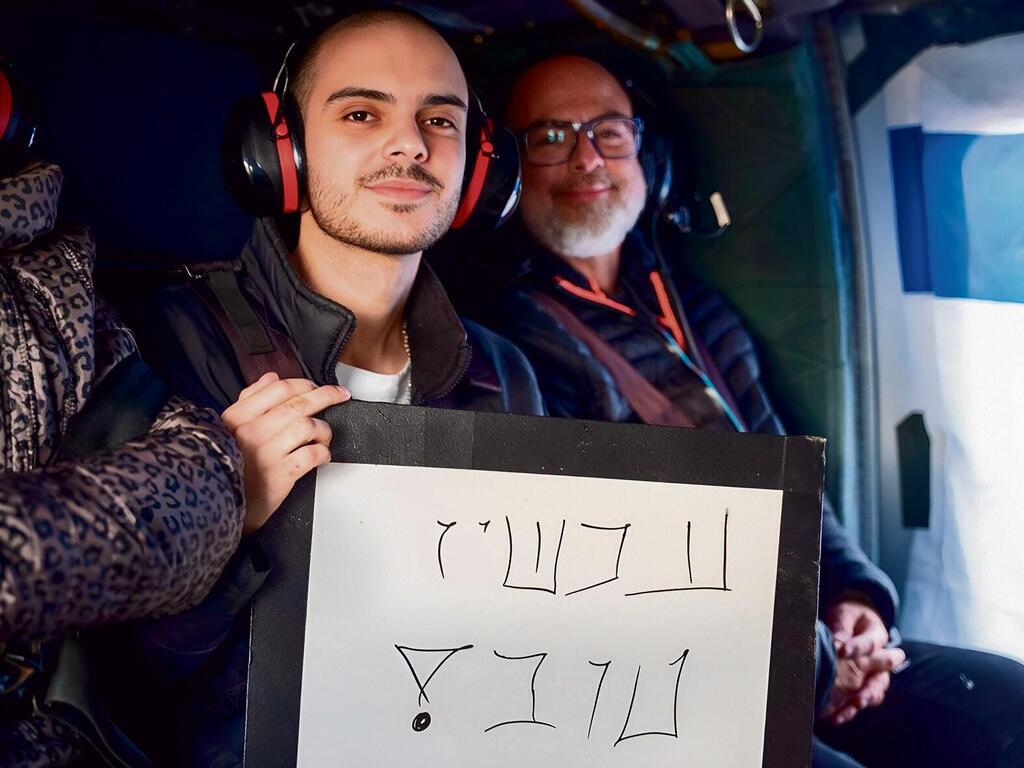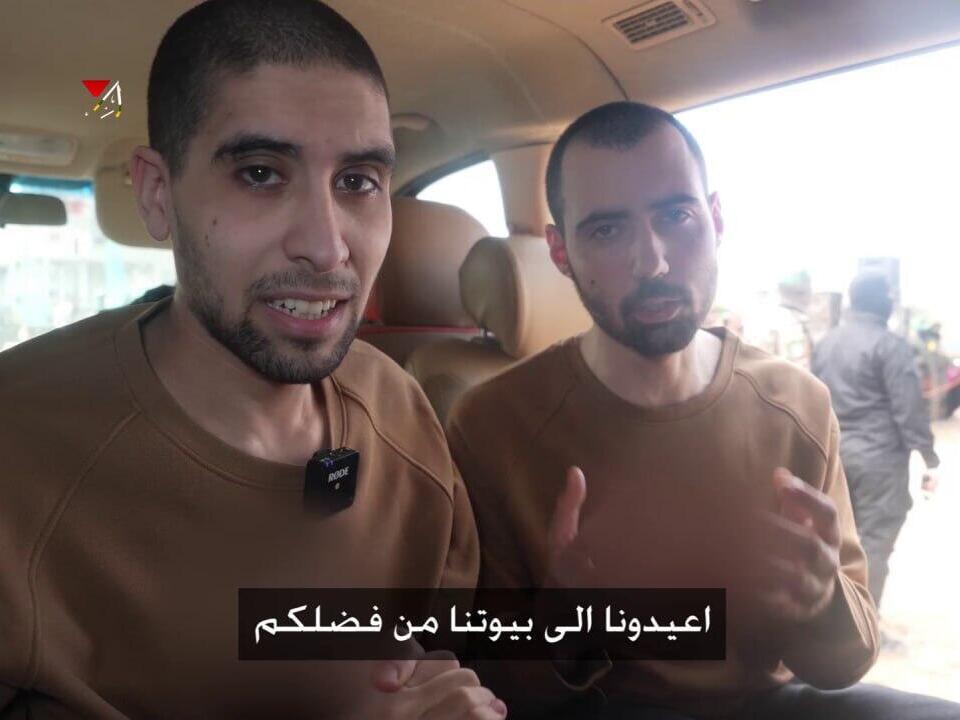Getting your Trinity Audio player ready...
Omer Wenkert nicknamed one of his Hamas captors “Tznon,” Hebrew for radish, a nod to his bitterness. Eight months into captivity, Tznon turned violent. He opened the door of Wenkert’s underground cell—less than six feet tall and barely three feet wide—and kicked him three times in the head and twice in the back. The terrorist told Wenkert it was punishment for looking at him.
The next day, Tznon ordered him to perform push-ups, sit-ups and squats—what felt like hundreds. Wenkert eventually collapsed from exhaustion. Tznon spat on him and shouted insults. “Say you are a son of a bitch, say you are a dog,” Wenkert recalled him yelling. When Wenkert thought the ordeal was over and raised his head, he realized Tznon was still there. “Why are you looking at me?” the captor screamed, before striking Wenkert with a crowbar. The beatings continued—including on his 23rd birthday.
It was during one of those assaults that Tznon told Wenkert his father had been killed in an Israeli military operation—what Wenkert believes may have triggered the abuse.
Wenkert, who was kidnapped by Hamas terrorists from the Nova music festival on October 7, 2023, was held in tunnels beneath Gaza for 505 days. He was among 38 hostages released during a cease-fire in February. When he returned to Israel, he had lost more than 80 pounds.
In an interview with The Wall Street Journal, Wenkert described the conditions of captivity: starvation, beatings, and prolonged isolation. For 197 of those days, he was held completely alone. To stay sane, he developed a daily routine—pacing a narrow corridor for hours, singing Israeli rap songs, and speaking to himself. He also began to pray, despite not coming from a religious background. At times, he recited Psalm 23 (traditionally associated with comfort in times of distress, beginning with “The Lord is my shepherd, I shall not want”).
Since his return, Wenkert has become an outspoken advocate for the hostages who remain in Gaza. “There needs to be an understanding among all of our government and military brass that every decision, sentence and word they utter has a direct and clear influence on our fate,” he said. “I say ‘our fate’ because we are still there.”
Get the Ynetnews app on your smartphone: Google Play: https://bit.ly/4eJ37pE | Apple App Store: https://bit.ly/3ZL7iNv
Wenkert has met with Israeli lawmakers, Sara Netanyahu—the wife of Prime Minister Benjamin Netanyahu—and members of the negotiating team. He also expressed deep guilt over the continued captivity of fellow hostages Evyatar David and Guy Gilboa Dalal, with whom he spent half his time in captivity. “What reason is there that I should be here and Evyatar and Guy aren’t with me right now?” he asked.
Wenkert emphasized that military pressure endangered hostages' lives. He and others described how Hamas terrorists kept explosives nearby to deter rescue operations. He believes negotiations are the only effective path. “The top priority is the return of the hostages alone—not the destruction of Hamas, not to destroy infrastructure, not nonsense like that,” Wenkert said. “The return of the hostages—this is where the success of the return to war will be measured for me.”



